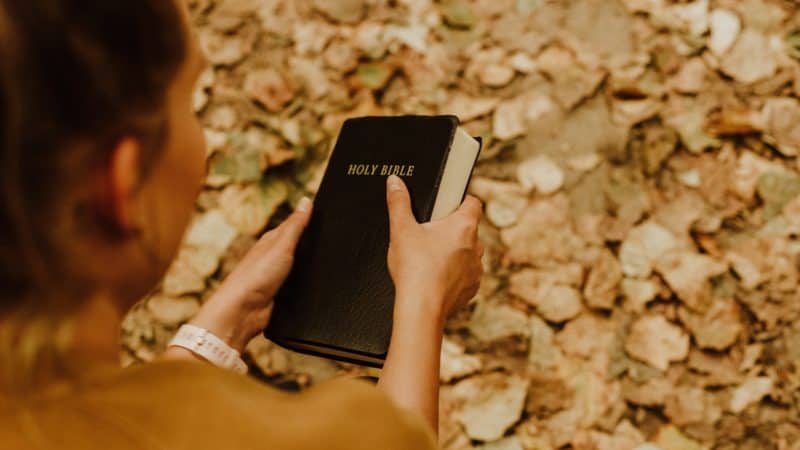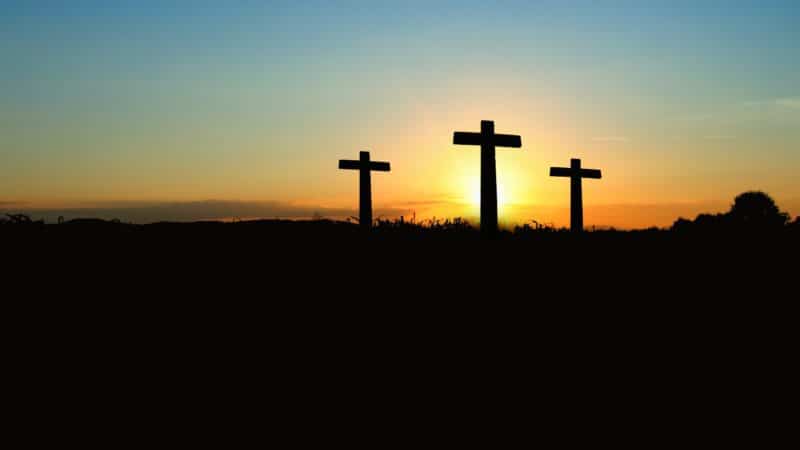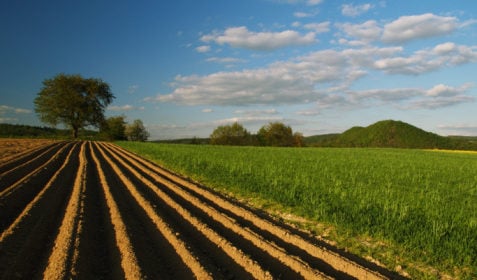When we look at the choices we make in life, even the small daily choices, it’s easy to feel like we’re a jumble of contradictions.
We can spend the whole day at a job where we help others, then come home and snap at a family member for no particular reason. We can try our hardest to be kind and patient with someone we love, only to say something harsh to them at the worst possible moment.
We are capable of great empathy and selflessness—and we are also capable of cruelty, hatred, and insensitivity. Why are we like this?
Seventh-day Adventists look to the Bible to tell us who we are. It gives us the whole story of where we came from, and why we are the way we are.
We’ll unpack what is found in the Bible about:
- Humanity’s origins
- What it means to be created in God’s image
- How humanity lost their perfection, severing their connection to God
- How that loss of connection impacts every part of our lives
- God’s plan to redeem us and repair the relationship we once had with Him
All these things are key to understanding our identity as human beings.
Belief 7: Nature of Humanity
Man and woman were made in the image of God with individuality, the power and freedom to think and to do. Though created free beings, each is an indivisible unity of body, mind, and spirit, dependent upon God for life and breath and all else. When our first parents disobeyed God, they denied their dependence upon Him and fell from their high position. The image of God in them was marred and they became subject to death. Their descendants share this fallen nature and its consequences. They are born with weaknesses and tendencies to evil. But God in Christ reconciled the world to Himself and by His Spirit restores in penitent mortals the image of their Maker. Created for the glory of God, they are called to love Him and one another, and to care for their environment. (Gen. 1:26-28; 2:7, 15; 3; Ps. 8:4-8; 51:5, 10; 58:3; Jer. 17:9; Acts 17:24-28; Rom. 5:12-17; 2 Cor. 5:19, 20; Eph. 2:3; 1 Thess. 5:23; 1 John 3:4; 4:7, 8, 11, 20.)

Where did Humanity come from?
The first step in understanding who we are as human beings is understanding where we came from. If we turn to the second chapter of Genesis, we get the full picture.
It is the sixth day of the creation week, and God had just finished crafting the world. He made the sun and the moon, the sea and dry land, and had filled the earth with all sorts of plants and animals. Now He was ready to create His masterpiece.
“Then the Lord God formed the man of dust from the ground and breathed into his nostrils the breath of life, and the man became a living creature. And the Lord God planted a garden in Eden, in the east, and there he put the man whom he had formed” (Genesis 2:7-8, ESV).
This account in Genesis tells us exactly where we come from: dust. The only reason we live is because God has breathed life into us.
This tells us a couple of things about human nature.
First, we are created beings who owe our very existence to God. It is He who made us. We are no more a result of random chance than a beautiful sculpture is a result of a bunch of rocks being knocked together.
Second, we are unique individuals in that God was personally involved in the creation of humanity. Everything else on earth, the stars, the plants, the animals, was spoken into existence. God took time to reach into the earth and sculpt the first human beings with His own hand.
God cared enough to make us unique individuals, each one infinitely precious to Him. He made us in His image.
What does it mean to be created in the image of God?
Humans possess specific capabilities other living beings on earth do not. These characteristics are also qualities God expresses.
Then God said, “Let us make man in our image, after our likeness. And let them have dominion over the fish of the sea and over the birds of the heavens and over the livestock and over all the earth and over every creeping thing that creeps on the earth.”
So God created man in his own image, in the image of God he created him; male and female he created them.
And God blessed them. And God said to them, “Be fruitful and multiply and fill the earth and subdue it, and have dominion over the fish of the sea and over the birds of the heavens and over every living thing that moves on the earth” (Genesis 1:26-28, ESV).

We were created with consciousness.
We not only sense our surroundings, we are also aware of them. We can process things voluntarily and make decisions based on the sensory information we take in.
We were also made to be creative.
God created the earth and gave us the ability to create things within the earth. Though God is the provider of every material we can use, He made us able to express ourselves through the work of our own hands.
We were created to exercise authority.
While ultimate authority belongs to God, He also gave humanity responsibility. He asked Adam and Eve to care for the earth.
We were given the ability to choose.
While no one can choose the life they’re given, we can all choose what to do with what we’re given. We can choose what we give our attention, our love, our allegiance. God didn’t want us to be programmed to follow Him. He only wants our hearts if we willingly give them to Him.
Free agency is a key component of the nature of humanity. From the moment Adam and Eve were created, they had control of their own thoughts, actions and desires.
Genesis paints us a picture of what humanity was always meant to be. We were designed to be unique individuals with creative hearts and minds, endowed with the power to choose.
We were designed to take care of this world and rule it kindly, becoming good stewards of the incredible planet God made for us. But most importantly, we were designed in God’s image, meant to live in a loving relationship with Him.
When they lived in the Garden of Eden, Adam and Eve walked and talked with God every day (Genesis 3:8). They were the original family, living in perfect harmony with the loving God who created them.
Want to know how God can help you find freedom, healing and love in your life today? Check out our online Bible Studies.
But something changed. Something that shattered their relationship with God and brought unspeakable trouble upon the world. Trouble that has changed the nature of humanity ever since.

How did humanity become corrupt?
The broken world we live in today is a long way from the perfection of Eden. So how did it all fall apart?
The answer lies in our ability to choose. It was the abuse of the free will God granted us.
When God first created perfect human beings, He gave them many gifts. The Garden of Eden was intended to bless humanity. All the creatures were peaceful and there were plants for food.
If He wanted this race of beings to truly love Him and accept love from Him, they must be able to choose Him. And in order to be able to choose, choices must exist.
“And the Lord God commanded the man, saying, “You may surely eat of every tree of the garden, but of the tree of the knowledge of good and evil you shall not eat, for in the day that you eat of it you shall surely die” (Genesis 2:16-17 ESV).
What was a deadly tree like this doing in Eden’s paradise? Why would God, who created everything, intentionally plant a tree that would kill Adam and Eve if they ate from it?
This is a difficult question, and the best answer we can find is that the existence of the Tree of the Knowledge of Good and Evil was so humanity could learn to exercise their free will.
If they were to choose God, they needed to know what the other choice would be.
The presence of the Tree of the Knowledge of Good and Evil wasn’t a trap. It wasn’t even much of a temptation, since they had so many pleasing food options. But this tree showed that human beings were not God’s slaves.
If they wanted to, they had the choice to turn from Him and walk a different path. A path that, since God is the creator and sustainer, would lead them to death.
Unfortunately, Adam and Eve allowed themselves to be talked out of obeying God’s warning. They were tricked by the devil, deceived by his fancy words and lured in by the idea of being “like God, knowing good and evil” (Genesis 3:5 ESV).
They fell for Satan’s deception. And by eating the forbidden fruit, they committed the first sin: choosing self over God. This act of sin introduced evil and death into our world.
But it wasn’t the fruit itself that corrupted Adam and Eve, it was the decision behind it. By disobeying God’s command, Adam and Eve were claiming they didn’t need Him. Instead of trusting God knew what was best for them, their actions demonstrated that they knew what was best for themselves. And as soon as they discovered something they didn’t yet know about, they just had to know it. They wanted to be “like God.”

How our Human Nature Affects Us Today
With that single decision, the stable connection between God and humanity was severed. Once God’s presence was removed, sin swept in, like darkness filling a room when you turn off the lights.
Eating the fruit did exactly as the Serpent said. Mankind learned what it actually meant to know both good and evil at the same time.
And without God in their hearts, sin and selfishness consumed humankind. This quickly led the world into disaster.
That’s the way it’s been ever since. Each of us is born with the blot of selfishness inside us. This selfishness can lead us to hurt other people, the world around us, and ultimately ourselves—all misleadingly thinking we’re serving ourselves. The psalmist understood this when he wrote:
“Behold, I was brought forth in iniquity, and in sin did my mother conceive me” (Psalm 51:5 ESV).
The apostle Paul also expresses this feeling of spiritual warfare inside of us.
“For I do not understand my own actions. For I do not do what I want, but I do the very thing I hate. … For I know that nothing good dwells in me, that is, in my flesh For I have the desire to do what is right, but not the ability to carry it out (Romans 7:15-18, ESV).
Without a connection to God, humanity loses the perfection it once had. Mankind no longer resembles the God they were created to represent, and sin is left to have its way in the world.
But even so, we know this isn’t ultimately what we want. No one truly wants evil, selfishness, and hate to rule the world.
So what do we do about this wickedness inside us? Is there a way to reclaim the perfection humanity once had?
As with so many other questions, God offers us the answer to this as well.

How Does Jesus Redeem Human Nature?
The book of Genesis tells us that mankind was made in the image of God, and that with our rebellion we lost our perfection. We became desperately in need of redemption—and a redeemer.
It can be easy to think that if we do enough good in our lives or simply “follow our hearts,” we’ll eventually overcome our selfish impulses and reach perfection. The Bible tells us these ideas are simply not true.
“But we are all like an unclean thing, And all our righteousness are like filthy rags…” (Isaiah 64:6 NKJV).
“The heart is deceitful above all things, and desperately sick; who can understand it?” (Jeremiah 17:9 ESV).
God knows we cannot trust our own hearts, or that all the good we do in a lifetime cannot make us righteous. Does that mean mankind is doomed to be flawed forever?
No. God had already come up with a way to redeem us and restore the lost connection we once had with Him. He did this through His only son, Jesus Christ. Jesus is the only truly perfect person Who has ever lived on this earth. By taking the punishment for our sins on the cross, Jesus provided His righteousness for all of us, restoring our relationship with God.
“Therefore, as one trespass led to condemnation for all men, so one act of righteousness leads to justification and life for all men.
For as by the one man’s disobedience the many were made sinners, so by the one man’s obedience the many will be made righteous.
Now the law came in to increase the trespass, but where sin increased, grace abounded all the more, so that, as sin reigned in death, grace also might reign through righteousness leading to eternal life through Jesus Christ our Lord” (Romans 5:18-21 ESV).

There is nothing human beings can do under our own power to restore the perfection we lost in the Garden of Eden. All we can do is turn to the God who is perfect and accept the free gift of grace He offers us.
That is the only way we can repair our broken relationship with God. That is the only way we can escape the selfish impulses inside our hearts and receive a place in God’s kingdom.
God wants to be part of our lives. He wants us to accept His grace and live with Him in Heaven. But we have to invite Him in. We have to make a daily choice to bring God into our lives so He can help us fight the selfish, sinful nature we all carry inside us. We have to pray like the psalmist did:
“Create in me a clean heart, O God, and renew a right spirit within me” (Psalm 51:10 ESV).
God is willing to create a new, pure heart within us. He’ll grant us the victory. And when He does, we’ll be that much closer to our Heavenly Father and our eventual home with Him.
When we look at humanity’s true nature, how God created us perfect and how we lost that perfection, it draws us closer to Him.
We understand we can never “cure” our sin on our own, so we seek out Christ, the one and only answer to our broken nature. He is ready and waiting to repair our damaged relationship and lead us back to Him.
Ready to start Bible studies and discover Scripture for yourself?
Want to learn more about Jesus and receive His help and redemption in our brokenness? Check out our Online Bible Studies.

Our Unfortunate Inheritance
Seth Pierce Investigates what causes us to do things like fudge on our taxes or treat people badly.
Read More

Who Are You?
In a Berlin park the security guard challenged a scruffy figure slouching on a park bench: “Who are…
Read More
Growing in Christ
Jesus loved to tell stories. And people loved to listen to them. With his stories, Jesus encouraged…
Read More
Human “Nature”
J.R.R. Tolkien, author and creator of the epic mythology known as “The Lord of the Rings”…
Read More